Description
Overview
The telescope eye fantail goldfish has a rounded, egg-like body with protruding eyes, wide head and split caudal fin. It has many colors and color patterns including red, red-and-white, and calico, black and white, chocolate, blue, lavender, chocolate and blue and black coloration. Body may either have metallic or nacreous scales. It is characterized by its protruding eyes which do not develop until the fish is 6 months old. Fins are less developed and the anal and caudal fins are well divided into two matching halves which give the tail a triangle shape when it is viewed from the above. It is omnivorous and in wild condition it mainly feeds on plants, insects such as mosquito larvae, small crustaceans, zooplankton, benthic invertebrates and detritus. In captive condition it generally eats all kinds of fresh, frozen and flake foods, live or frozen brine shrimp, blood worms, Daphnia, Tubifex and krill. It also accepts vegetables like peas, cucumber, leafy greens like collards and kale. The mature female telescope eye can produce up to 10,000 eggs It grows up to 15.24 cm in length and can live up to 20 years or more.
Feeding
It is omnivorous and in wild condition it mainly feeds on plants, insects such as mosquito larvae, small crustaceans, zooplankton, benthic invertebrates and detritus. In captive condition it generally eats all kinds of fresh, frozen and flake foods, live or frozen brine shrimp, blood worms, Daphnia, Tubifex and krill. It also accepts vegetables like peas, cucumber, leafy greens like collards and kale. To keep a good balance gives them a high quality flake food every day. Feed should be offered 2-3 times daily.
Housing
The telescope eye fantail goldfish is a hardy fish and it is very popular among the aquarium enthusiasts. It requires at least 10 gallons tank or larger is recommended. The tank should have lots of swimming space with aquatic plants such as java plants. It is usually very hardy fish and it can live in temperatures which range from 65.0 to 72.0° F (18.3 to 22.2° C). It prefers good water chemistry with pH and hardness which ranges from 6.5 to 7.5 and 6-16 dGH respectively. The ammonia should always be 0 and the nitrate should be below 20mg/l. A regular weekly water change is strongly recommended to keep your fish healthy. Good filtration especially biological filtration is required for maintaining the water quality of the aquarium. Because this filtration system removes detritus, excess foods and wastes which help to keep the tank clean and maintain the general health of the fish in aquarium. Snails can be added as they reduce the algae in the tank that helps to keep the tank clean. The tank should be decorated with gravel substrate that helps to create a natural and comfortable environment for your fish. The telescope eye fantail can be kept with black moors, pandas, butterflies, pearlscales, Ryukin, Oranda, Tosakin, Lionhead, Ranchu or Veiltail. It should not be kept with faster swimming torpedo-shaped goldfish like shubunkins, comet or common goldfish.
Breeding
The telescope eye fantail goldfish is an egg layer and it can easily breed in captive condition with proper care. It is very social fish which likely to breed in groups as small as five individuals or more. In wild it spawns during the spring season. The breeding tank should have mimic condition that is found in nature. The tank should also have lush environment with solid surfaces for the spawning process. In this case bushy, oxygenating plants, such as Anacharis work well. Artificial plants or fibrous spawning mops can also be used. To enhance the breeding process adults can be conditioned with high quality protein foods such as pellets, Daphnia, brine shrimp and bloodworms. Breeding tank needs partial water changes of up to about 20 % per day. Spawning can last two or three hours and the mature female can produce up to 10,000 eggs which adhere by sticky threads to the plants or spawn mop. After spawning the parents must be removed from breeding tank to prevent them from eating the eggs. The fertilized eggs hatch in 4 to 7 days and the free swimming fry can be fed with newly hatched goldfish specialty fry foods until they become big enough to eat flake or brine shrimp. The free swimming fry are a dark brown or black in color and they gain adult color after several months.
Sexing
It is impossible to make differences between the male and female telescope eye at the young stage. Generally the male is smaller and more slender than the female. During the breeding season the male has breeding tubercles on the gill cover and head which are seen as white prickles while the mature females have a fatter appearance when she bears eggs in her belly.
Availability
The telescope eye fantail goldfish is one of the most beautiful goldfish among the aquarium enthusiasts. It can be recognized by it’s slightly egg shaped body, protruding eyes and split/double fins. The telescope eye fantail goldfish is readily available in fish stores and online vendor with moderate price and is ideal for the beginner fish keepers.
Written specially and exclusively for koi on demand by Dr. A.K.M. Nazrul Kabir

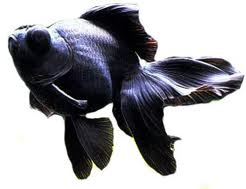
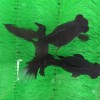
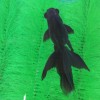
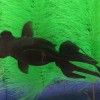
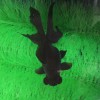
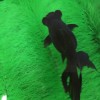
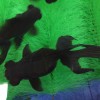
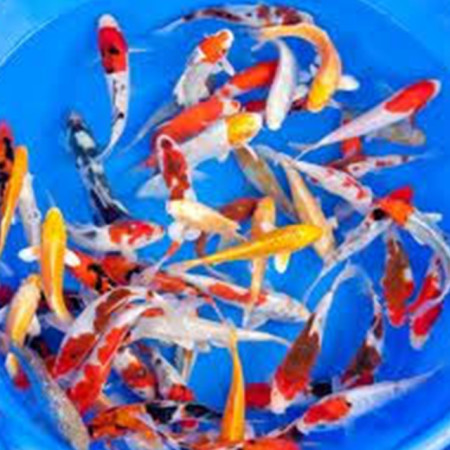
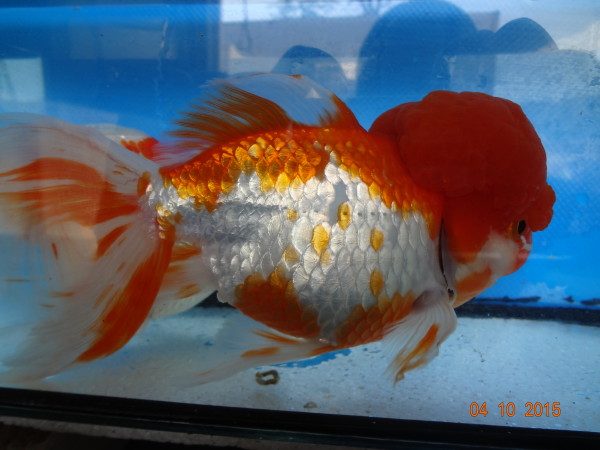
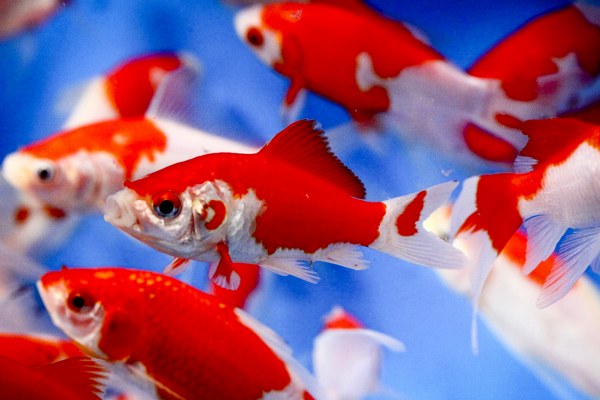
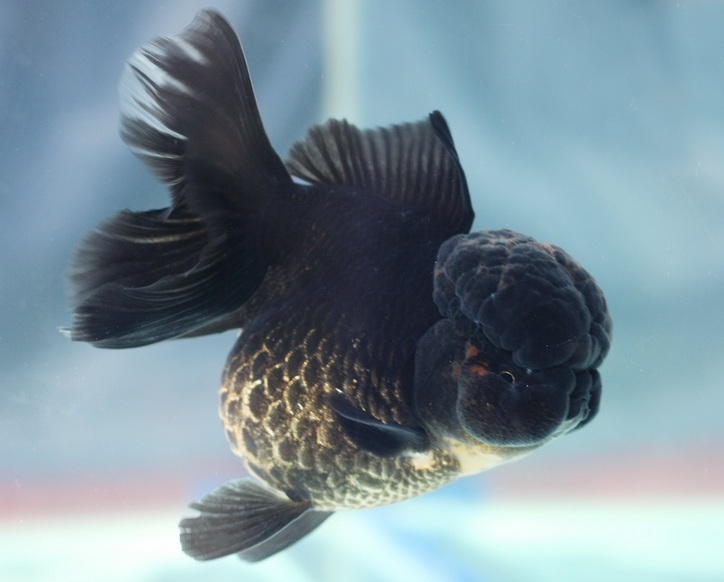
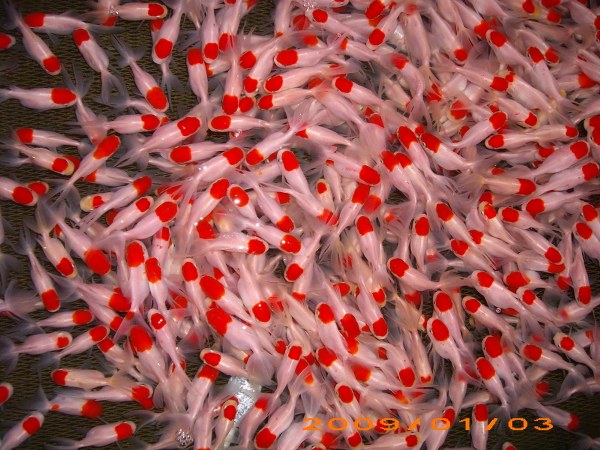


Reviews
There are no reviews yet.